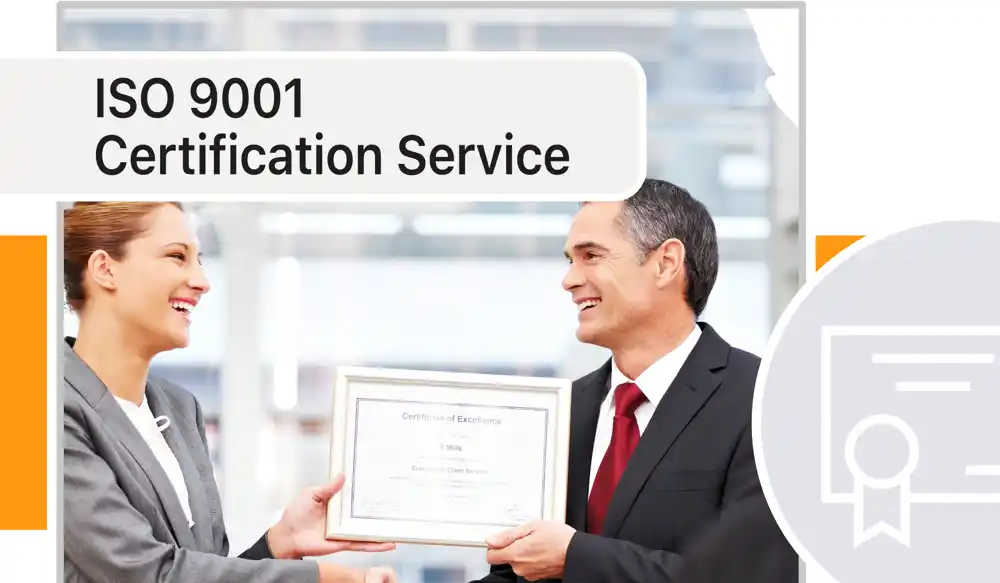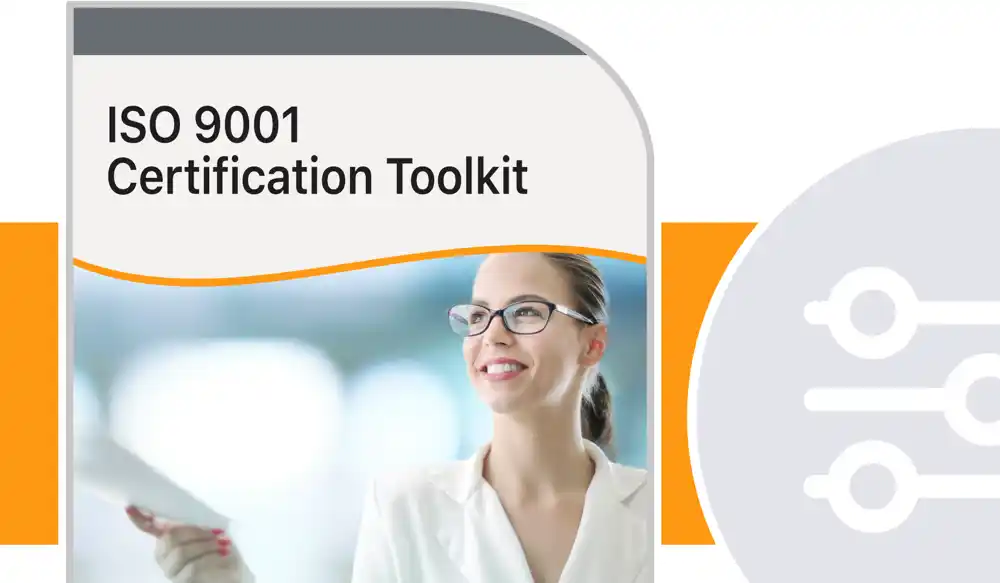ISO 9001 vs ISO 22000: Key Differences, Benefits, and Certification Guide
30 September 2023
ISO 9001 vs ISO 22000 is one of the most common comparisons in quality and food safety management. Both standards are developed by the International Organization for Standardization (ISO), but they serve different purposes. ISO 9001 focuses on quality management systems across all industries, while ISO 22000 is designed specifically for food safety management.
If your organization is considering certification, choosing between ISO 9001 and ISO 22000 depends on your industry and goals. Many food businesses choose both standards for maximum credibility. At 9001Simplified, we help companies achieve certification faster, with toolkits, consulting, and online training designed to simplify compliance. Get started today.

What is ISO 9001?
ISO 9001 is the world’s most widely used quality management system (QMS) standard. It applies to businesses in every industry, from manufacturing to services.
Key points about ISO 9001:
First published in 1987, latest version is ISO 9001:2015.
Over 1 million organizations are certified worldwide.
Focuses on customer satisfaction, process improvement, and risk-based thinking.
Requires documented processes, management reviews, audits, and corrective actions.
ISO 9001 helps organizations improve efficiency, reduce errors, and consistently deliver quality products or services. More details can be found on Wikipedia’s ISO 9000 page.
What is ISO 22000?
ISO 22000 is the international food safety management system standard. It applies to all businesses in the food chain, including manufacturers, transporters, distributors, and retailers.
Key points about ISO 22000:
First published in 2005, updated to ISO 22000:2018.
Based on Hazard Analysis and Critical Control Points (HACCP).
Ensures safe food handling, processing, and distribution.
Addresses legal compliance, contamination prevention, and consumer protection.
ISO 22000 is recognized globally, making it essential for businesses involved in international food trade.
ISO 9001 vs ISO 22000: Main Differences
While ISO 9001 and ISO 22000 share some structure, they differ in focus.
Scope: ISO 9001 is for all industries; ISO 22000 is for food and beverage businesses.
Objective: ISO 9001 ensures product/service quality; ISO 22000 ensures food safety.
Requirements: ISO 22000 integrates HACCP principles, while ISO 9001 does not.
Stakeholders: ISO 9001 addresses customers broadly; ISO 22000 also addresses regulators and public health authorities.
Risk focus: ISO 9001 focuses on operational risks; ISO 22000 focuses on food hazards and contamination risks.
In simple terms, ISO 9001 builds quality trust, while ISO 22000 builds food safety trust.

ISO 9001:2015 vs ISO 22000:2018
Both standards follow the Annex SL framework, which makes them easier to integrate. But there are differences in emphasis:
ISO 9001:2015 stresses leadership commitment, risk-based thinking, and customer focus.
ISO 22000:2018 adds food-specific risk controls, operational prerequisites, and communication across the food chain.
Businesses in the food sector often implement both standards together to cover quality and safety.
ISO 9001 vs FSSC 22000
Many businesses also compare ISO 9001 vs FSSC 22000. FSSC 22000 is a certification scheme recognized by the Global Food Safety Initiative (GFSI). It is built on ISO 22000 but includes additional requirements such as food fraud prevention and supply chain controls.
ISO 9001 → Generic quality management.
ISO 22000 → Food safety framework.
FSSC 22000 → ISO 22000 + GFSI recognition.
Companies needing global food supply chain acceptance often choose FSSC 22000.
Benefits of ISO 9001
Better process control and efficiency.
Improved customer satisfaction.
Reduced errors and waste.
Increased credibility and market access.
Easier integration with other ISO standards.
Many businesses use our ISO 9001 Certification Toolkit to achieve these benefits faster.
Benefits of ISO 22000
Global recognition in food trade.
Compliance with regulatory requirements.
Reduced risk of foodborne illness and recalls.
Improved communication in the supply chain.
Greater consumer confidence.
Food businesses seeking structured safety systems rely on ISO 22000 certification to build trust with regulators and customers.

Can You Combine ISO 9001 and ISO 22000?
Yes. Because both standards share the Annex SL structure, they can be integrated into a single management system. This saves time, reduces duplication, and lowers audit costs.
For example, a food manufacturer can apply ISO 9001 principles for quality assurance and ISO 22000 principles for food safety under one system.
Certification Process: ISO 9001 vs ISO 22000
The certification steps are similar for both standards:
1. Gap Analysis – Assess current practices against requirements.
2. Documentation – Develop policies, procedures, and controls.
3. Implementation – Train employees and introduce controls.
4. Internal Audit – Verify readiness for external review.
5. Certification Audit – Conducted by accredited certification bodies.
Continuous Improvement – Maintain compliance through regular reviews.
Need help? Our ISO 9001 Consulting Service provides expert support at every stage.

Cost Considerations
Certification costs depend on:
Company size
Number of sites
Complexity of processes
Chosen certification body
Small businesses often reduce costs with DIY toolkits and online training. Larger businesses may require full consulting services.
ISO 9001 Training and Support
Training ensures employees understand their role in maintaining compliance. Options include:
Foundation training for beginners.
Manager training for supervisors.
Lead Auditor training for internal or external auditors.
Explore our ISO 9001 online training courses to build competence across your team.
Industry Examples
Manufacturing: ISO 9001 improves defect prevention and customer confidence.
Food Processing: ISO 22000 prevents contamination and ensures legal compliance.
Logistics: Combined ISO 9001 and ISO 22000 ensures quality and safety in supply chains.
ISO 9001 vs ISO 22000: Which One Do You Need?
If you are outside the food industry → Choose ISO 9001.
If you are in the food industry → Choose ISO 22000.
If you want both quality and food safety → Implement both standards.
Businesses that choose the right certification improve efficiency, reduce risks, and gain customer trust.
Conclusion: ISO 9001 vs ISO 22000
The choice between ISO 9001 vs ISO 22000 depends on your industry and customer expectations. ISO 9001 helps organizations improve overall quality and efficiency. ISO 22000 ensures food safety, regulatory compliance, and consumer protection.
For food businesses, both standards can be integrated for stronger credibility. Certification is not just about compliance, it is about building trust, expanding market access, and protecting your brand.
Ready to start? Explore our ISO 9001 Certification Toolkit or get expert consulting support today.


